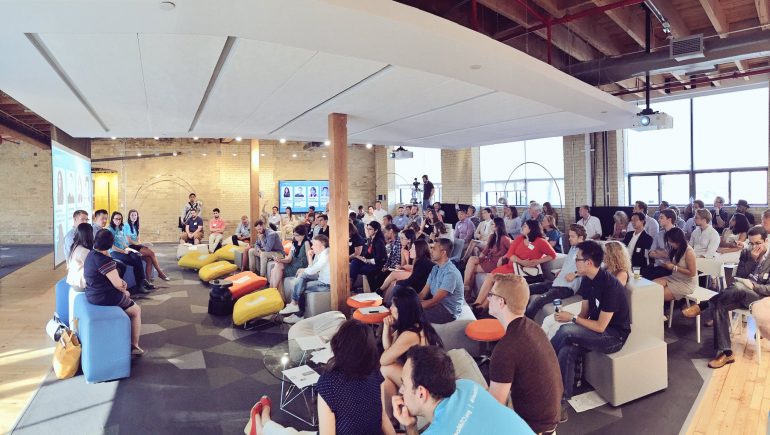As Canada’s health care system becomes increasingly strained, startups are stepping up to address specific problems with the system, such as a lack of communication between doctors and patients and a lack of digital networks for doctors to connect.
At TechToronto’s first-ever HealthTO, the event brought in startups addressing these problems and more to talk about the future implications of this tech: as these digital solutions become entrusted with sensitive patient data, how will companies protect patients?
Grace Soyao, founder and CEO of Self Care Catalysts, said that the conversation around access to data needs to be more focused on using data to improve care.
“What I find disturbing is that the conversation and dialogue around privacy has been very much focused on the process and the security itself instead of how we use the data,” said Soyao. “We’re missing the point because instead of talking about regulation, the point we need to address is how we use the data to make better care for patients?”
However – how do you keep patients aware that their data is being used, and that they aren’t just checking off a box that says ‘I agree’?
“It all comes back to informed consent. Everything in healthcare comes back to informed consent; if you’re going to use health care records or information, ask them for their consent before you aggregate it,” said Aliya Ramji, director of legal and business strategy at Figure1. “They will be more receptive to having their data used because they know what it’s being used for.”
Akira CEO and co-founder Dustin Walper, from his company’s perspective, said that Akira isn’t even interested in selling patient data — every care organization should remain focused on improving care.”My philosophy is that we don’t want to sell patient data. We want to improve quality of care, we want to use it in machine learning to predict disease. We don’t want to sell it.”
Despite the best intentions of health care organizations, ResearchDB CEO and founder Frank Wang said there are a few key considerations patients must make before consenting to their data being used. “One is whether you can control or enforce who does and doesn’t get your information, and two — in terms of actually improving patient care — there is a risk of giving out information if you don’t know who has access to it.
Watch the whole panel below:
The next HealthTO is on September 28. Get your tickets now!

